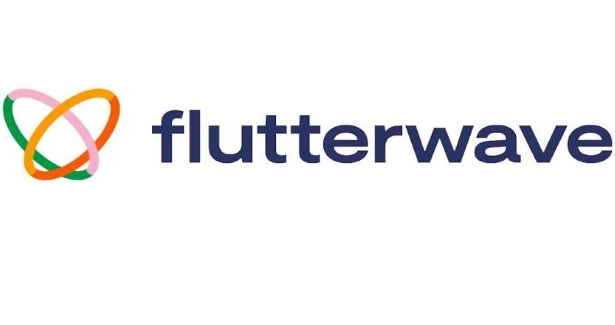E-Financial
Nigeria Navigates Through Coronavirus Storm

By Lukman Otunuga, Senior Research Analyst at FXTM
As headwinds from the coronavirus pandemic storm lambaste the world economy, the outlook for Nigeria appears more cloudy for the second half of the year.
The next few months are critical for the country’s fragile economic recovery and the main question is whether Nigeria will sink or swim in the coronavirus storm.
On the positive side, the Federal Government announced the second four-week phase of lockdown easing, hopefully leading to some breathing room for the economy. However, the infection rate is still growing at over 25,500 confirmed cases and over 580 deaths.
Damage from the storm
Opinions differ on just how much water Nigeria’s economy is taking on as the cracks appear in its hull. The IMF expects the economy to contract by minus 5.4 percent, while the finance minister sees the contraction at minus 8.9 percent. The World Bank is more positive, putting the damage at minus 3.2 percent this year.
Is patching the leaks enough?
The Central Bank of Nigeria (CBN) cut interest rates and the government unleashed fiscal measures, raising another question – will this be enough to fix the leaks?
External and domestic risks range from shaky Oil prices, slowing global growth, US-China trade uncertainty and Nigeria’s heavy reliance on Oil revenues. Headwinds in the Oil industry may blow even harder given the recorded COVID-19 cases in some offshore sites.
The results so far bear out the volatile outlook. Total revenue from crude Oil and natural gas declined by 31 percent in March, likely knocking onto GDP growth for the first half.
These developments put the country’s $5.9 billion economic stimulus plan in the hot seat. The priority is certainly to jumpstart growth against the current odds. Monetary policy options are becoming thin on the ground, though, and it remains uncertain whether the CBN has enough room to cut interest rates from 12.5 percent given how inflation jumped for the ninth straight month to 12.4 percent in May.
The crux of the economy is consumption, which accounts for roughly 70 percent of GDP. It may be that the CBN will find other unconventional methods to boost consumption and steer Nigeria away from a recession.
At the time of writing, however, the difficulties are significant and risks to the economy remain high as the effects of the coronavirus pandemic prove to be immune to monetary policy. Whether we like it or not, COVID-19 will remain a major theme in the markets as Asia, Europe and the US report an increasing number of new cases.
Adding to the risks is the growing possibility of a new round of lockdowns as fears intensify over a second wave of coronavirus infections pressuring the world economy again. Another wave could have devastating consequences, putting quick recoveries beyond the capacity of central banks and governments and initiating years of slow progress.
If a second wave is avoided, the key question will be whether Nigeria has done enough to mitigate the impacts of COVID-19 and navigate around a rocky recession.
In my opinion, the situation remains unpredictable. A positive way forward could be through economic adaptation measures such as promoting local tourism, building up the technology sector, and tax incentives for consumers, retailers and similar sectors to encourage spending amid an already-loosened credit environment.
E-Financial
Flutterwave Rises from Lagos Startup to Africa’s Fintech Powerhouse

Flutterwave has transformed from a modest Lagos venture into one of Africa’s most valuable fintech firms, processing billions in transactions yearly across 30+ countries and 150+ currencies.

Flutterwave
Founded in 2016 by Iyinoluwa Aboyeji, Olugbenga “GB” Agboola, and Adeleke Adekoya, it tackled Africa’s fragmented payments—siloed banks, mobile money gaps, and unreliable cross-border flows—with a unified API for seamless collections, payouts, and settlements.
Founding Vision
The trio spotted the pain: Aboyeji’s Andela faced border delays; Agboola drew from PayPal/Google; Adekoya handled compliance. Early wins included Uber Nigeria payouts from a Lekki co-working space, proving scalability amid lean ops.
Growth Milestones
2017–2020: $10M seed/Series A fueled West Africa push; Agboola took CEO helm post-Aboyeji; COVID boosted e-commerce volumes.
2021–2022: Unicorn at $1B+ (Series C, $170M); $3B+ valuation (Series D, $250M); partnerships with Microsoft, Uber; Send App for US diaspora.
2025–2026: Profitability focus yields better margins; 34 US licenses; Mono acquisition ($25–40M) bolsters open banking.
Challenges Overcome
Regulatory hurdles hit: Kenya 2022 freeze (cleared); Nigeria fraud claims (resolved, controls enhanced); culture probes led to reforms with ex-Mastercard/Stripe hires. These underscore multi-jurisdiction risks like FX curbs and cyber threats.
Nigeria’s Fintech Role
Flutterwave anchors alongside Paystack (Stripe-owned), Moniepoint, amid CBN cash curbs and AfCFTA trade boosts. Dual HQ in Lagos/SF eyes IPO post-profitability, cementing it as Africa’s payments backbone.
E-Financial
CIBN Pledges Full Support to New ACAMB Leadership, Backs Ambitious Roadmap

Chartered Institute of Bankers of Nigeria (CIBN) has pledged its full support to the Association of Corporate and Marketing Professionals in Banks (ACAMB) following a high-level strategic meeting between the leadership of both bodies.

New ACAMB Leadership
The high profile meeting, which took place on Tuesday at the CIBN Building, Lagos, served as a formal introduction of the new ACAMB Executive Committee to the CIBN leadership and marked the beginning of a renewed collaborative alliance.
Leading a delegation of the newly inaugurated ACAMB EXCO and Board of Trustees, the President, Jide Sipe, described the visit as a crucial first step in his tenure, aimed at contributing significantly in giving flight to his vision and that of ACAMB.”
“When we assumed office, one of the first things we agreed on was the need to visit key stakeholders”
“However, before reaching out more broadly, we felt it was important to begin with our primary constituency and core stakeholders. We want them to understand the direction we are taking and to support the work we are doing, so that ACAMB can achieve greater success than it has in the past”
“We couldn’t have properly started our tenure without this very important meeting with the CIBN,” Sipe stated
Sipe introduced the newly constituted ACAMB Exco, which includes, the 2nd Vice President, Morolake Phillip-Ladipo; General Secretary, Olugbenga Owootomo, Assistant General Secretary, Ademola Adeshola; Publicity Secretary, Abiodun Coker, and Executive Secretary, Fadekemi Ajakaiye
During his address, Sipe unveiled an ambitious roadmap for the association, highlighting a new direction focused on youth engagement, professional development, and industry advocacy.
Responding, the CIBN President, Professor Pius Deji Olanrewaju, who warmly received the ACAMB team, commended their forward-thinking vision as he noted that, the association would be focusing on critical areas such as reputational management, sustainable corporate practices, and governance reforms
Olarenwaju also commended ACAMB’s collaboration with CIBN in information management, saying it had raised standards across Nigeria’s banking sector.
“ACAMB’s support has given CIBN and the banking sector brand equity,” he said, praising the association’s record in reputation management.
He recalled ACAMB’s role in addressing crises within the sector, describing the partnership as strategic and beneficial.
He further pledged support for ACAMB’s 30th anniversary in September 2026, its AGM, and other programmes, including fundraising initiatives.
Olarenwaju also promised backing for ACAMB’s capability development and undergraduate mentorship schemes.
“I want to assure you that everything you have presented today has been clearly noted and will be acted upon”
“We are fully committed to working closely with you so as to translate these discussions and vision into measurable progress. Our shared goal is to strengthen the sector, protect its reputation, and enhance its public image in a meaningful and lasting way”
“This meeting discussed various initiatives and reforms crucial for the future of our industry, including the need for continuous training and adaptation to new programs,” Prof. Olanrewaju said.
The meeting concluded on a high note, with both parties expressing gratitude and a firm commitment to deepening their collaboration for the advancement of the banking industry in Nigeria.
E-Financial
Kuda Bank Teams Up with Lovers & Frnds for Inclusive Valentine’s R&B Bash

Kuda Microfinance Bank partnered with Lovers & Frnds for a Valentine’s edition event on Sunday, February 15, at Space Hub Lekki, Lagos, redefining celebrations around love, friendship, and social connections beyond romance.

Kuda Bank
The R&B-themed gathering drew couples, friend groups, and solo attendees with music sets from DJs like TGarbs, games, gift exchanges, and colour-coded tags—red for relationships, yellow for mingling singles, orange for non-minglers—to spark easy interactions.
Kuda activated a branded photo booth, merchandise giveaways, prize activities, and complimentary drinks for Premium loyalty tier customers, while vendors used Kuda Business POS terminals for seamless cashless payments.
Senior Brand Manager Emmanuel Femi-Adejobi said: “We partner with experiences matching our customers’ lifestyles in music and entertainment, creating spaces they genuinely connect with—we’ll keep supporting how they live and celebrate.”

 E-Business1 day ago
E-Business1 day agoAfDB, UNDP Launch $10Bn AI Initiative for Africa

 News2 days ago
News2 days agoNITDA Urges Stronger State Partnerships as Key to Digital Economy Goals @ South-South Stakeholders Forum

 Telecom2 days ago
Telecom2 days agoGSMA Launches Innovation Fund to Accelerate Green Transition Through Mobile Technology

 E-Business2 days ago
E-Business2 days agoFirm Identifies RenEngine Loader Distributed Through Pirated Games and Software

 Telecom2 days ago
Telecom2 days agoProf. Adeyanju is Strengthening Nigeria’s Digital Backbone for a Connected Future in Two Years of Purposeful Leadership

 E-Financial2 days ago
E-Financial2 days agoFidelity Bank Launches HerFidelity Apprenticeship Programme 2.0 to Boost Women Entrepreneurship

 Telecom1 day ago
Telecom1 day agoGrey Expands Cross-Border Banking with USD Accounts, USDC Support

 E-Financial2 days ago
E-Financial2 days agoTAJBank Secures A1 Ratings from Agusto, Datapro

























